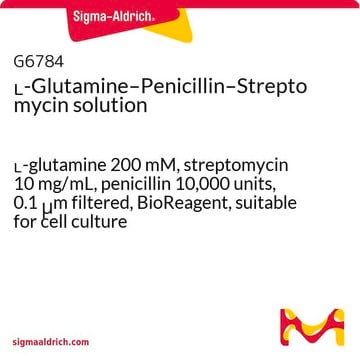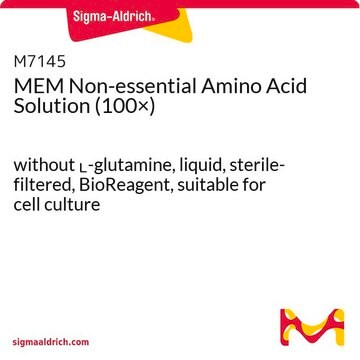59202C
L-Glutamine Solution 200 mM
29.23 mg/mL in saline, solution, suitable for cell culture
Pharma Manufacturing
Synonym(s):
L-Glutamine solution
About This Item
Recommended Products
Quality Level
description
for research or for further manufacturing use
sterility
sterile; sterile-filtered
form
solution
technique(s)
cell culture | mammalian: suitable
components
L-glutamine: 29.23 mg/mL
shipped in
dry ice
storage temp.
−20°C
SMILES string
N[C@@H](CCC(N)=O)C(O)=O
InChI
1S/C5H10N2O3/c6-3(5(9)10)1-2-4(7)8/h3H,1-2,6H2,(H2,7,8)(H,9,10)/t3-/m0/s1
InChI key
ZDXPYRJPNDTMRX-VKHMYHEASA-N
Looking for similar products? Visit Product Comparison Guide
General description
Storage Class Code
12 - Non Combustible Liquids
WGK
WGK 1
Flash Point(F)
Not applicable
Flash Point(C)
Not applicable
Choose from one of the most recent versions:
Certificates of Analysis (COA)
Don't see the Right Version?
If you require a particular version, you can look up a specific certificate by the Lot or Batch number.
Already Own This Product?
Find documentation for the products that you have recently purchased in the Document Library.
Customers Also Viewed
Articles
Importance and uses of glutamine in hybridoma and mammalian cell culture
Our team of scientists has experience in all areas of research including Life Science, Material Science, Chemical Synthesis, Chromatography, Analytical and many others.
Contact Technical Service











